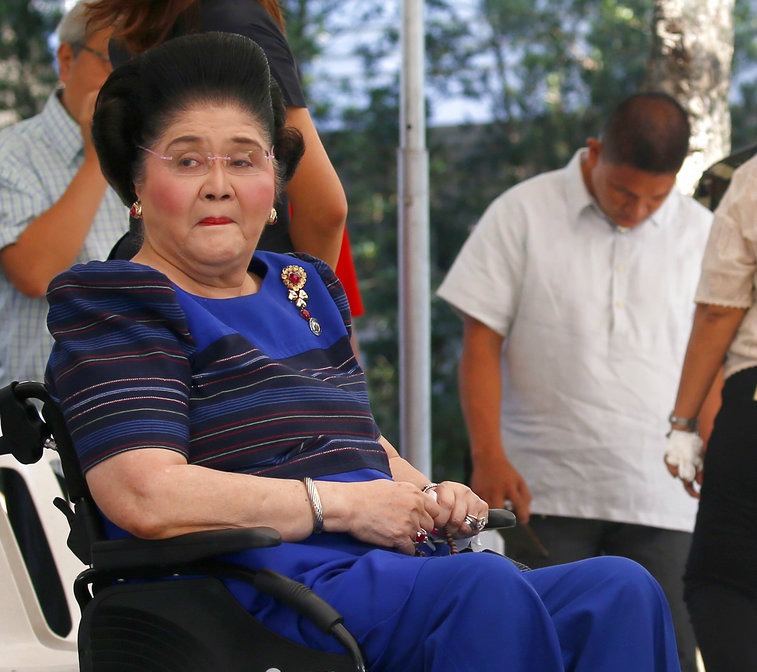A Philippine court found former first lady Imelda Marcos guilty of graft and ordered her arrest on Friday in a rare conviction among many corruption cases that she's likely to appeal to avoid jail and losing her seat in Congress.
The special anti-graft Sandiganbayan court sentenced Marcos, 89, to serve 6 to 11 years in prison for each of the seven counts of violating an anti-corruption law when she illegally funneled about $200 million to Swiss foundations in the 1970s as Metropolitan Manila governor.
Neither Marcos nor anyone representing her attended Friday’s court hearing. No one has issued any reaction on her behalf although her lawyers were expected to appeal the ruling, which anti-Marcos activists and human rights victims welcomed as long overdue.
The court disqualified Marcos from holding public office, but she can remain a member of the powerful House of Representatives while appealing the decision. Her congressional term will end next year but she has registered to run to replace her daughter as governor of northern Ilocos Norte province.
“I was jumping up and down in joy in disbelief,” said former Commission on Human Rights chairwoman Loretta Ann Rosales, who was among many activists locked up after Imelda’s husband, former President Ferdinand Marcos, declared martial law in the Philippines in 1972.
Rosales said the decision was a huge setback to efforts by the Marcos family to revise history by denying many of the atrocities under the dictatorship, and urged Filipinos to fight all threats against democracy and civil liberties.
Imelda Marcos’s husband was ousted by an army-backed “people power” revolt in 1986. He died in self-exile in Hawaii in 1989 but his widow and children returned to the Philippines. Most have been elected to public offices in an impressive political comeback.
Government prosecutor Ryan Quilala told reporters that Marcos and her husband opened and managed Swiss foundations in violation of the Philippine Constitution, using aliases in a bid to hide stolen funds. The Marcoses have been accused of plundering the government’s coffers amid crushing poverty. They have denied any wrongdoing and have successfully fought many other corruption cases.
Imelda Marcos was acquitted on Friday in three other cases, which were filed in 1991 and took nearly three decades of trial by several judges and prosecutors. She was once convicted of a graft case in 1993, but the Supreme Court later cleared her of any wrongdoing.
President Rodrigo Duterte, an ally of the Marcoses, said last year the Marcos family had indicated a willingness to return a still-unspecified amount of money and “a few gold bars” to help ease budget deficits. He indicated the family still denied that the assets had been stolen as alleged by political opponents.
Ferdinand Marcos had placed the Philippines under martial rule a year before his term was to expire. He padlocked Congress, ordered the arrest of political rivals and left-wing activists and ruled by decree. His family is said to have amassed an estimated $5 billion to $10 billion while he was in power.
A Hawaii court found Marcos liable for human rights violations and awarded $2 billion from his estate to compensate more than 9,000 Filipinos who filed a lawsuit against him for torture, incarceration, extrajudicial killings and disappearances.
Duterte has acknowledged that Imee Marcos, the couple’s daughter and a provincial governor, backed his presidential candidacy.











